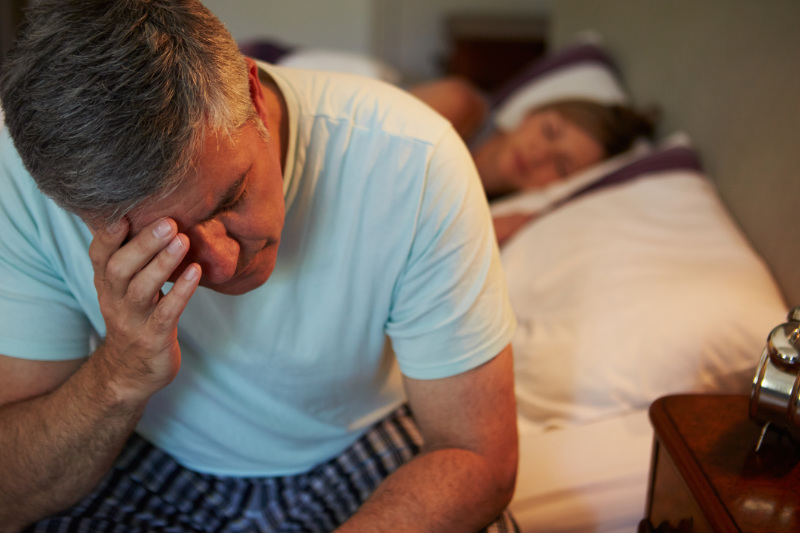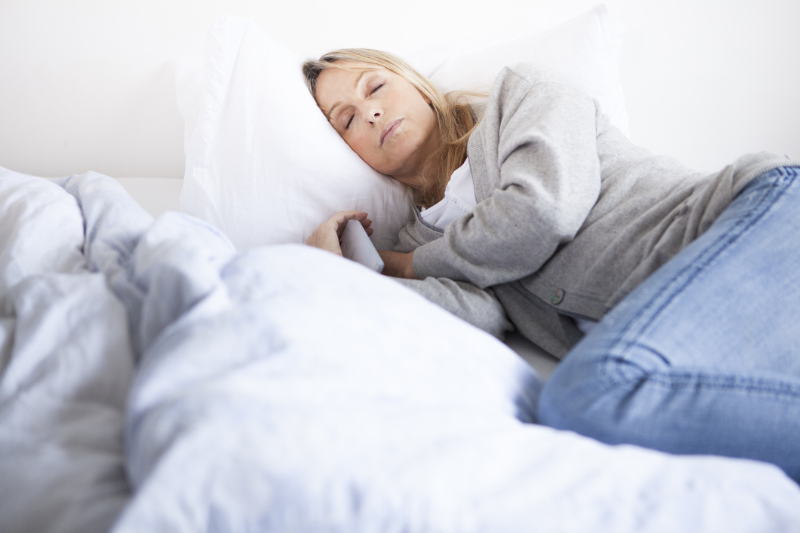The secret to a good night’s sleep is a topic that generates plenty of heated debate, and there’s lots of conflicting advice out there on how to better your chances of snoozing soundly. So what are the sleep myths damaging your health – and what should you do about them?
Whether you have a nightcap before bed, or count sheep while tossing and turning for hours, there are lots of tips that have become common antidotes to a restless night under the covers.
According to a new study though, many of us may be self-sabotaging our sleep by following popular sleep myths that have little research behind them to prove they’re actually useful.
Researchers from New York University’s Langone Health’s School of Medicine combed through more than 8,000 articles to find the most common ideas around sleep, and then asked a team of sleep medicine experts to explain which are unhealthy assumptions.
The findings, published in the journal Sleep Health, revealed there are many claims that could be damaging our health. Here are five sleep myths debunked that the researchers picked out.
Recommended: Why lack of sleep is bad for your health and what you can do about it.
The sleep myths damaging your health
1. Drinking alcohol can help you sleep
When you’re struggling to switch off at night, it can be tempting to uncork a bottle of vino and attempt to induce that sleepy red wine feeling. But while a glass of red might help you drift off initially, the researchers found it can dramatically reduce the quality of your rest.
“The literature on sleep and alcohol shows that alcohol consumed close to bedtime reduces sleep latency, but subsequently causes sleep disturbances in the second half of the night,” the researchers write.
“Alcohol has a negative overall impact on sleep, delaying the onset of REM sleep,” the study concludes.
2. It’s OK to get less than five hours of sleep per night

Dream on, say researchers. The study found that the belief that getting less than five hours of sleep per night is healthy is inaccurate.
The study team write: “Several studies show that even after weeks of observation and tracking, reducing sleep leads to sustained decrements in performance.”
And add: “Habitual insufficient sleep (five hours or fewer) is associated with adverse outcomes related to cardiovascular, metabolic, mental, and immunological health.”
They concluded that although you might “adjust” to being in a constant sleep-debt, you do so at the risk of serious health consequences.
Recommended: How to sleep when worried about something – 12 tips for worry-free sleeping.
3. Falling asleep ‘anywhere, anytime’ is the sign of a good sleeper
It’s easy to feel envious of those who can pass out on planes, trains and buses with complete ease, but the researchers say that napping on-the-go may be “indicative of a chronically sleep-deprived state.”
Rather than being the sign of a good sleeper this is one of those sleep myths damaging your health, and they said that sleeping in uncomfortable places is “likely a sign of an underlying sleep problem.”
4. Snoring isn’t bad for your health
Loud snoring isn’t just annoying for other people to deal with its also one of those sleep myths damaging your health and potentially a sign of bigger health issues, like sleep apnea, which raises the risk of high blood pressure, heart attacks and stroke.
“Snoring is caused by turbulent airflow due to partial obstruction of the upper airway during sleep,” the study authors write.
“One large cross-sectional study of US adults found that 52.7% of reported snoring and that snoring was associated with adverse health outcomes in its own right.
“Furthermore, snoring is a primary symptom of OSA (obstructive sleep apnea) that, when untreated, places individuals at elevated risk for adverse cardiovascular events.”
5. Suffering from insomnia? Stay in bed until you fall asleep

This is one of the biggest sleep myths damaging your health. Common advice suggests that when you’re struggling to drift off, you should stay in bed until sleep finally comes. The researchers, however, say that counting sheep endlessly is not ideal.
Although it sounds counterintuitive, the researchers found that those who practice something called ‘stimulus control therapy’ – where they leave the bed when they’re struggling to sleep – demonstrate improvements in sleep issues.
A healthy sleeper should be able to nod off in 15 minutes, so if you’re still awake at this point, the researchers conclude you should get up and do something that avoids blue light (so no scrolling through your phone). This could be anything from reading a book on the sofa to doing a repetitive task like folding washing.
Before you know it, you’ll be ready to give getting to sleep another go.
Nutritionist Rob Hobson battled insomnia for years – here’s how he managed to fix his sleep

































































